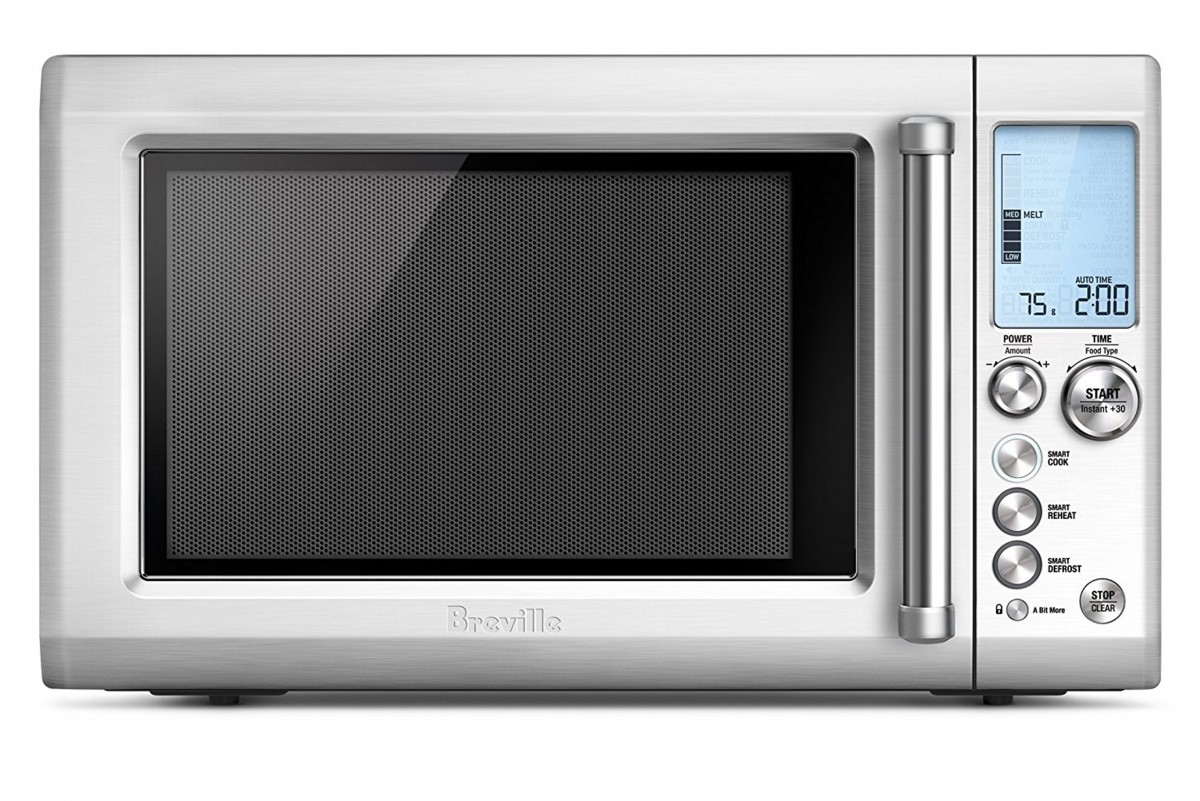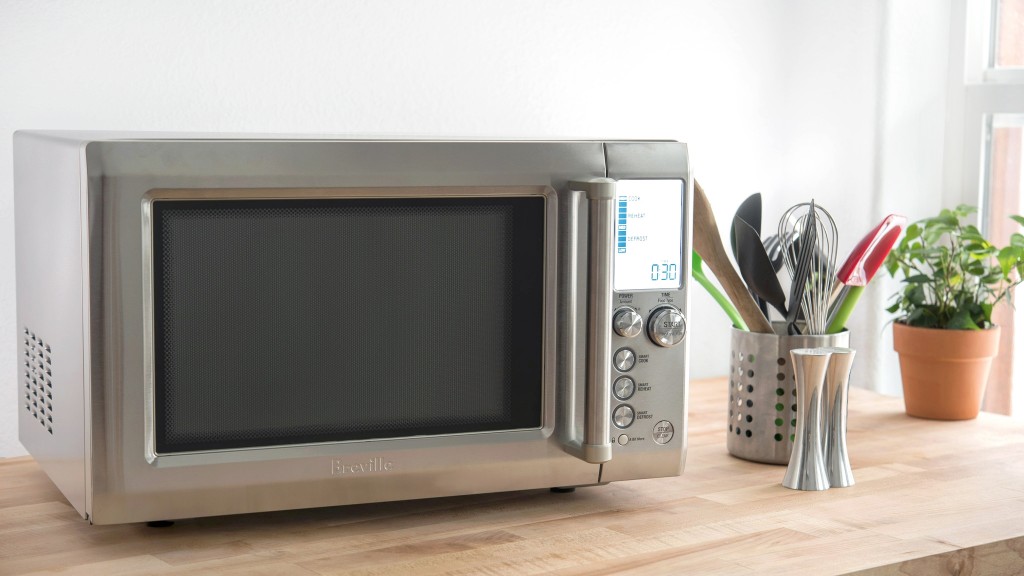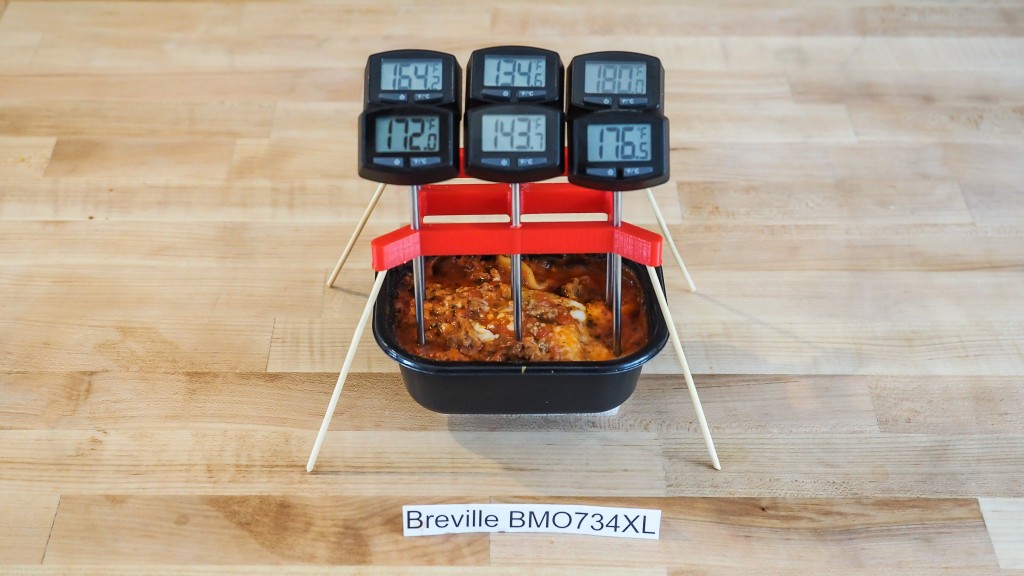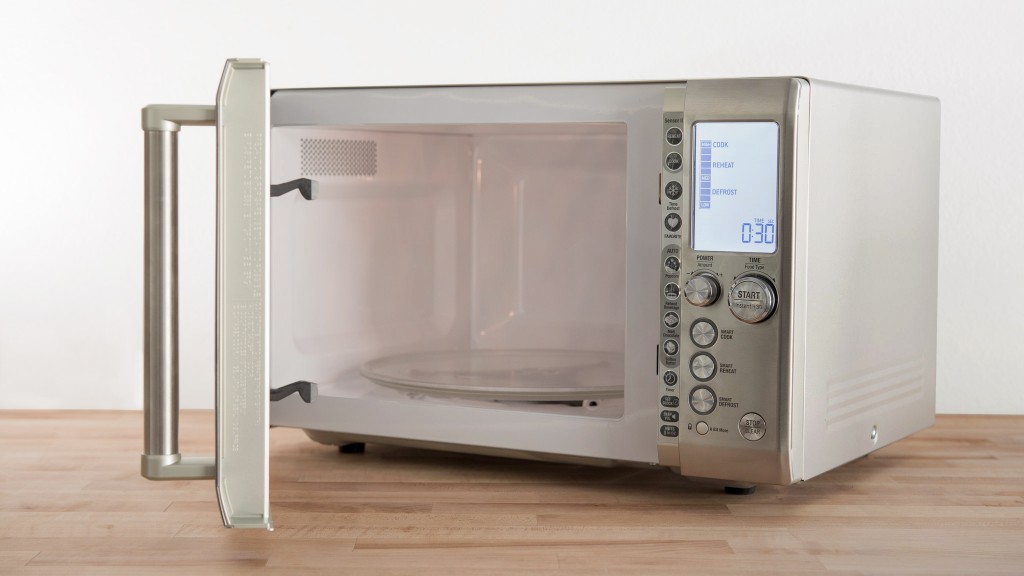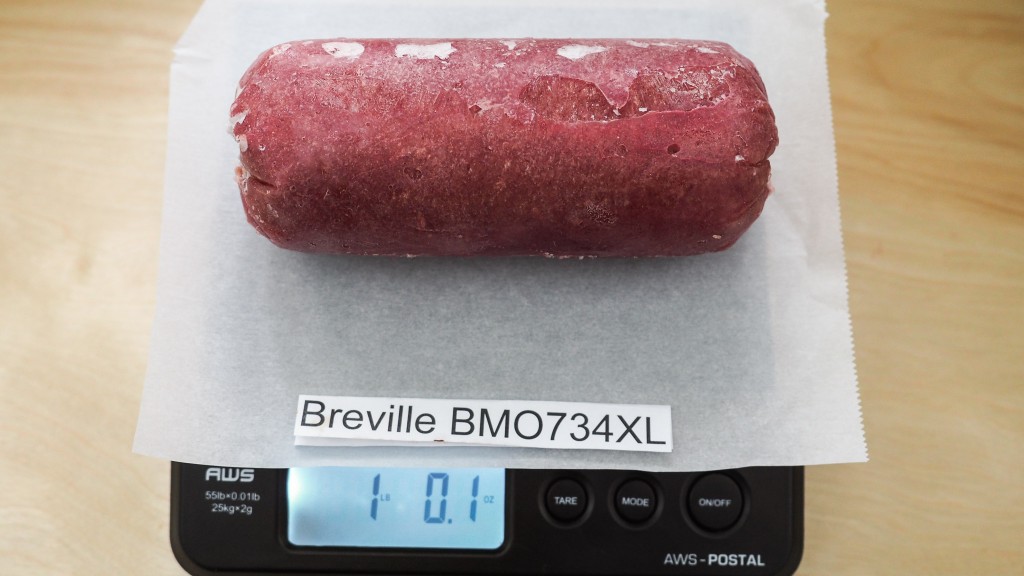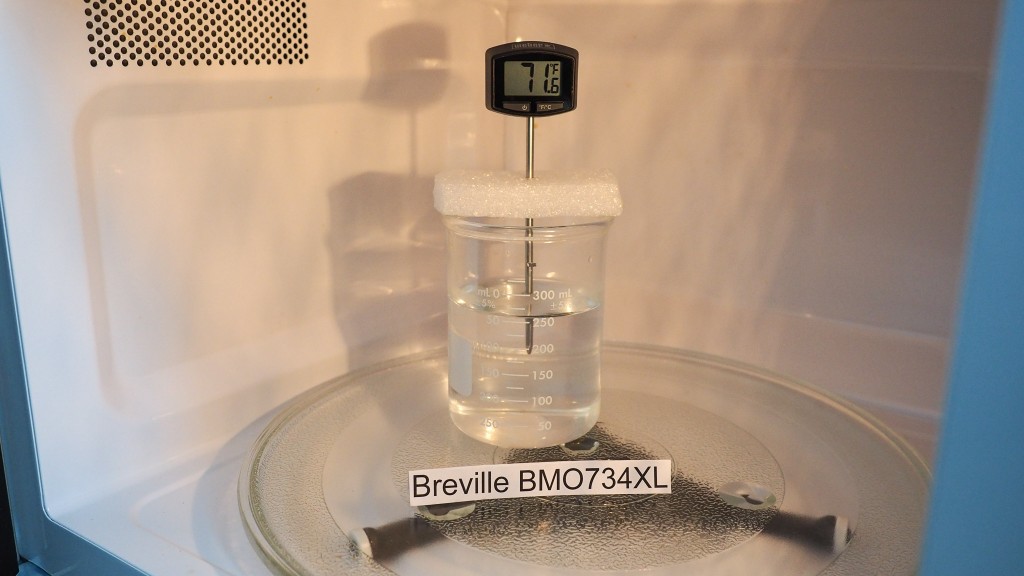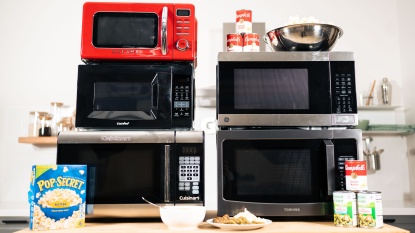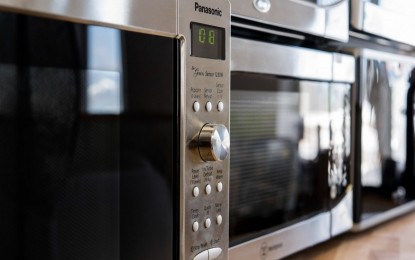Breville Quick Touch Review
Our Verdict
Our Analysis and Test Results
While the Breville does have a sleek, flashy exterior with a more detailed screen and interface than many other models, it falls short in arguably the most important traits for these products: heating and defrosting food. It also has a very high list price, more than the top scoring model, the Panasonic NN-SD745S, which earned 17 more points in our tests.
Performance Comparison
We spent an inordinate amount of time — over 150 hours — researching and testing these products to see which ones came out on top. Our testing plan was split into four weighted metrics. These were Heating, Ease of Use, Defrosting, and Speed, with each model receiving a score in each area. You can read more about how the Breville did in the following section.
Heating
Heating food quickly and easily is why you would buy one of these products in the first place, making a good score in this metric critical. This is why it makes up 40% of the overall score, including tasks such as heating a frozen burrito, Hot Pocket, and a plate of leftovers, to name a few. Unfortunately, the Breville scored poorly, earning a subpar 4 out of 10.
This model failed miserably at heating up a frozen burrito, with the center well below the stated minimum temperature. It also was heated extremely unevenly, with an average temperature difference of 21.5°F.
The Breville fared even worse in our lasagna test, once again failing to heat the center to the necessary temperature, and having a huge amount of average temperature variation between different regions of the lasagna. It averaged about 21.9°F, substantially more than the 3.1°F of the Oster or the 3.8°F of the Kenmore.
The Breville did redeem itself a minuscule bit in our leftover, doing an average job. We used the “Sensor IQ reheat” function, and the green beans, mashed potatoes, and chicken tenders were all roughly heated the same amount, with the green beans being slightly warmer. There were some warm and cool spots, but nothing too extreme in either direction.
After a brief respite, the Breville was back to performing poorly in out chicken pot pie test. The center failed to reach the minimum temperature, and there was an average temperature discrepancy of 13.6°F between different areas of the pie.
The Breville finished out our test with an acceptable performance in our Hot Pocket test and with the chocolate heat map. All three regions of the Hot Pocket hit the minimum temperature stated by the package directions, and there wasn't a ton of temperature variation, only 6°F on average.
We made a heat map by trimming a piece of nonstick paper to match the turntable on each microwave, then spread melted chocolate to uniformly cover it, then let it cool.
We then heated it in the Breville for one minute, and looked for inconsistencies in melting. The center was still solid, and the very outer edge had just begun to melt.
Ease of Use
Being easy to use is a trait that any top performing microwave should have, and this metric reflects that, making up 30% of the total score. The Breville excelled in this category, earning the second-highest score of 7 out of 10. This was determined off the Breville's performance in our preset effectiveness tests, as well as by evaluating the quick buttons, keypad, interior light, its timer functions, and whether or not it would slide around on the counter when the door was opened or closed.
We made a bag of popcorn and baked a potato using the preset buttons. The Breville did about average, doing better at making popcorn than baking the potato. It made awesome popcorn that wasn't burned at all, though it did leave a decent number of kernels unpopped.
It made a slightly subpar baked potato, with the center and right side seeming slightly raw and on the firm side, though the left side was cooked to perfection.
This model doesn't have any keypad quick buttons, but it does have a “+ 30 Seconds” button that automatically starts the microwave. The Breville has a great interior light, and you can easily see the food inside while it's being heated. This model can act as a kitchen timer, but not while you are using it to heat food.
We weren't the biggest fans of the lack of a keypad, but this was the best of the dial interface models. The Breville was a sturdy model and was the hardest to slide on a smooth countertop.
Defrosting
The metric was set up to test the defrost by weight capabilities of these appliances. We defrosted a 1 lb roll of ground turkey and a frozen muffin in each machine and compared the results to determine their defrosting scores, which made up 20% of the overall score. The Breville did a subpar job, earning a 4 out of 10.
This model only easily defrosted about 4.9 ounces of the turkey, with the remaining log being difficult to break apart, and would probably need some additional time in the microwave. The Breville does notify you at the halfway point to flip the meat.
This product did a little better at defrosting the muffin, but not by much. We used the Smart Defrost function set to the weight that most closely matches the muffin. The top was much cooler than the bottom or the sides, with some of the chocolate chips being completely frozen still. The Breville does have a time defrost functions, as well as a smart defrost, where you enter the weight and food type that most closely matches what you are defrosting, such as frozen meals, meat, poultry, soup, or fish.
Speed
For our last metric, we evaluated how quickly these products operated. The Breville did below average, once again earning a 4 out of 10. To test this, we heated up 250 mL of water in each model for a minute and recorded the temperature rise. The Breville raised the temperature by 32°F, about 5°F less than the top scoring model.
Value
This model cost the most and scored close to the bottom of the pack — not a good value at all.
Conclusion
While the Breville was easy to use, it just didn't have a strong showing in terms of heating and defrosting food. This, coupled with its exceptionally high list price, make it difficult to recommend.


